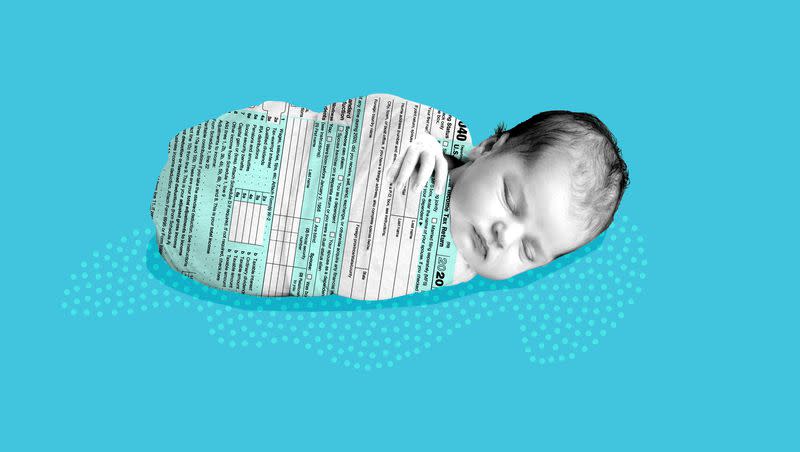Child tax credit, business tax relief agreement reached — but will Congress pass it?

Congressional negotiators have reached a roughly $78 billion deal to make the child tax credit more generous, boost construction of affordable housing, provide tax breaks for disaster relief and restore several business tax breaks.
The bipartisan proposal is a compromise between the more generous version of the child tax credit that was part of the American Rescue Plan and a tighter version that’s preferred by conservatives.
While the negotiators hope to get the measure passed in both the House and Senate in time for the start of tax filing season Jan. 29, it’s not clear whether there will be enough support to push it over the finish line.
The deal was negotiated by leaders of Congress’ tax-writing committees: House Ways and Means Committee Chairman Jason Smith, R-Mo., and Senate Finance Committee Chairman Ron Wyden, D-Ore. In posts on X (formerly Twitter), the Senate Finance Committee said the proposal will provide a bigger child tax credit for 15 million low-income children and will lift 400,000 of them above poverty.
The plan also expands the Low-Income Housing Tax Credit and “will secure construction of more than 200,000 new units of affordable housing,” according to the committee’s post.
Among key provisions in the deal:
The child tax credit would, in steps through 2025, increase the maximum refundable portion of the credit per child to $2,000 from its existing $1,600 and be indexed to inflation starting in 2024. Refundable means that families that qualify for it could claim the credit even if they didn’t owe that much in taxes.
The penalty for larger families would also be eliminated so low-income families with multiple children get a larger share of the refundable credit.
Families could use their current or prior-year income to calculate the credit in 2024 or 2025.
For those hit by disasters, a small business could write off more of its investment, while families could receive disaster tax relief from recent wildfires, hurricanes, flooding and the Ohio rail disaster.
The legislation would retroactively allow businesses to file amended returns claiming interest, capital and U.S.-based research and development deductions that expired in 2022 and 2023. Right now, they must spread R&D deductions over five years.
Additionally, the proposed deal “also includes provisions giving Taiwanese semiconductor companies operating in the U.S. relief from tax problems created by the lack of a tax treaty between the two countries,” per Politico.
To help pay for the package, the deadline for filing backdated claims for the Employee Retention Tax Credit would be moved up. That program, designed to help companies keep their employees during COVID-19, has been widely criticized for its fraud potential. The new deal, if passed, would mean applications for the tax credit stop at the end of January, rather than being accepted into 2025.
Related
Politico reported that “the package would also slap significantly heftier fines on promoters who marketed fraudulent credits up to $200,000 or more.”
“American families will benefit from this bipartisan agreement that provides greater tax relief, strengthens Main Street businesses, boosts our competitiveness with China, and creates jobs,” Smith said in a statement. “We even provide disaster relief and cut red tape for small businesses, while ending a COVID-era program that’s costing taxpayers billions in fraud.”
CNN reported Tuesday that “while the bipartisan and bicameral support is notable, this deal was not negotiated by the leadership and its pathway through Congress remains unclear. Some lawmakers are pushing to attach it to a must-pass bill to help ease its passage, but the bill may need to go as a standalone bill.”

